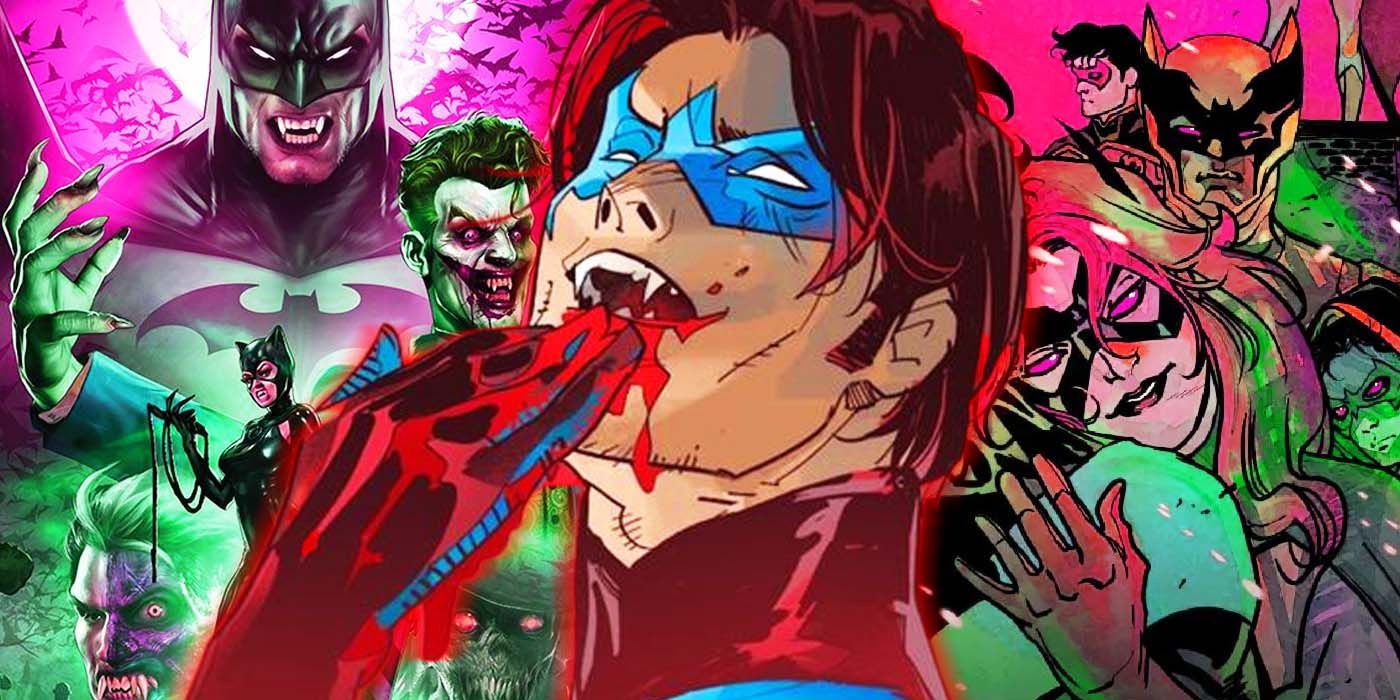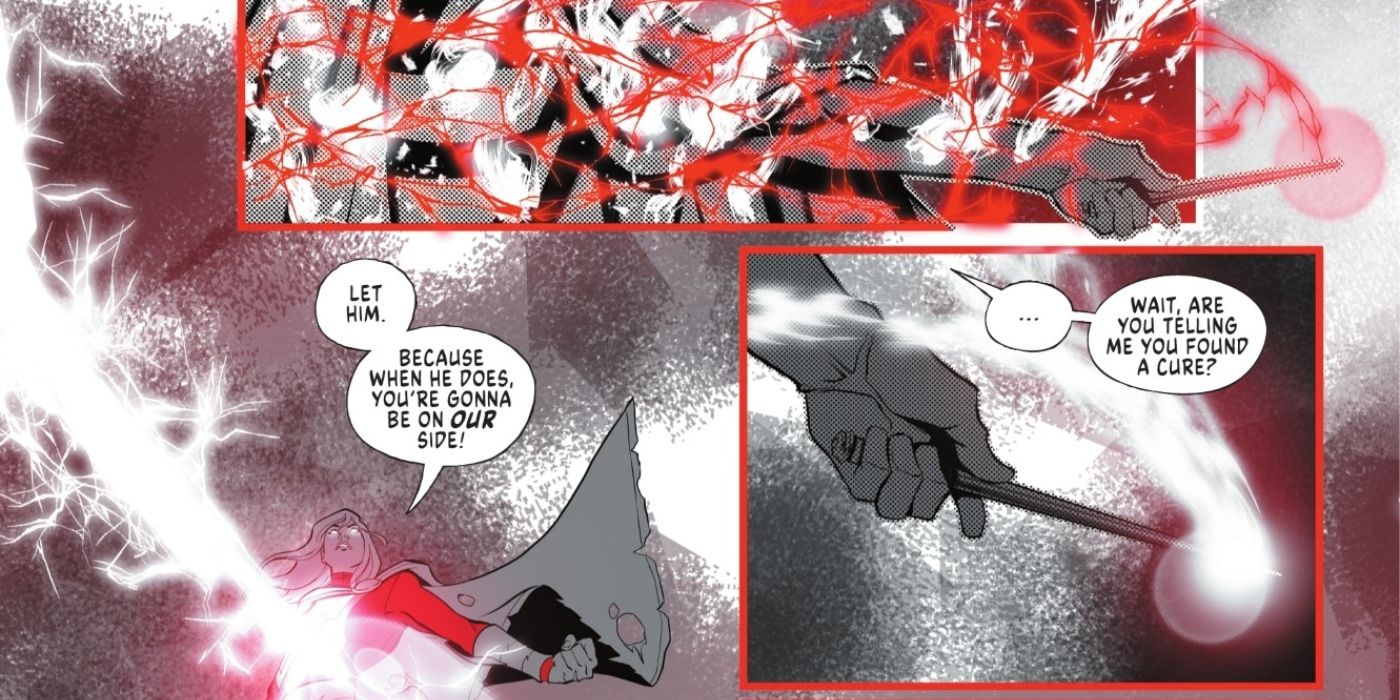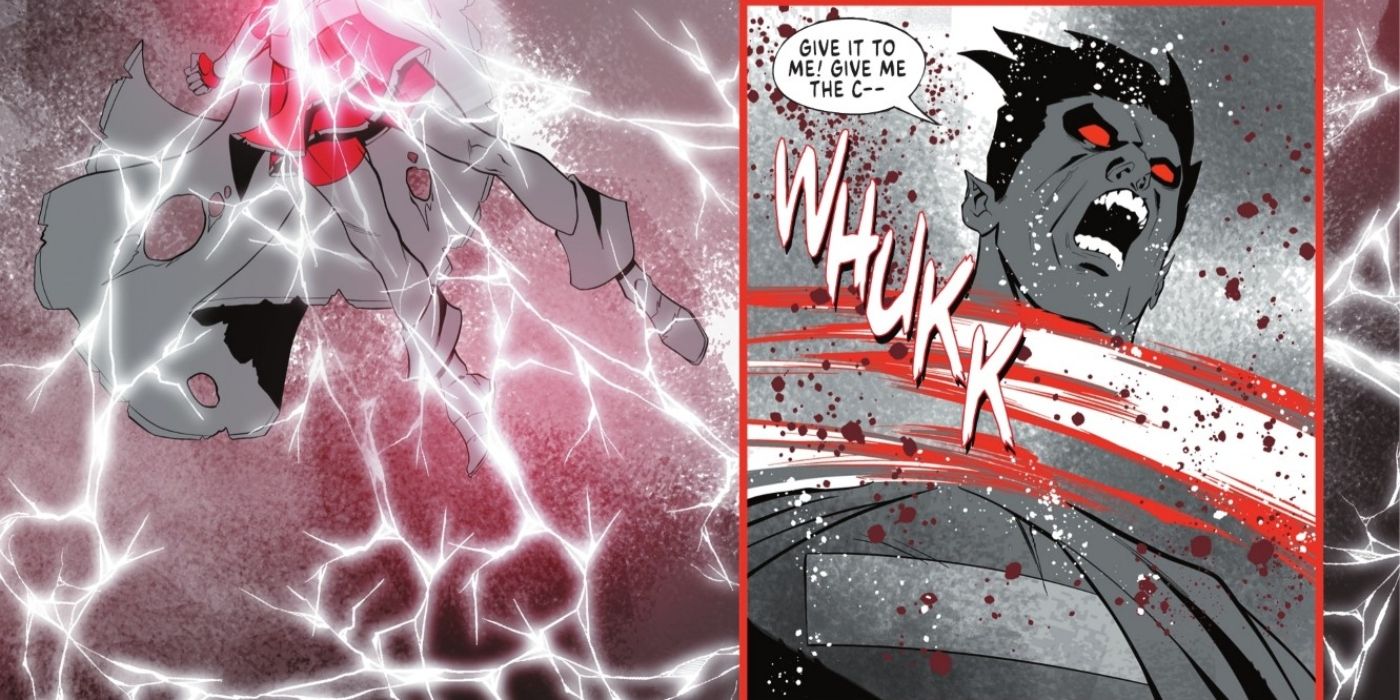The following article contains spoilers from DC vs. Vampires: All-Out War #4, on sale now.
The nature of vampirism in the DCU has been something of an enigma. People react to it in various ways, and it's become clear that it is almost impossible for DC's mages to understand completely. At the same time, it seems to function as something of an addiction that is impossible to resist. However, DC vs. Vampires: All-Out War #4 (by Alex Paknadel, Matthew Rosenberg, Pasquale Qualano, Nicola Righi, Troy Peteri) reveals that not all vampires, even if they swear loyalty to Nightwing, enjoy their new vampiric status.
When Mary Marvel revealed to the Weather Wizard that there was a cure for vampirism, he ceased all hostilities and demanded she give him the cure. Unfortunately, he was killed before he could get it, but his reaction is telling. It demonstrates that not all vampires like what they have been turned into. Furthermore, it begs the question of why some do, whereas others do not.
How Vampirism Works in the DC Universe
From the few accounts that have been given about how it feels to be a vampire, many describe it as being largely defined by a hunger that is impossible to resist. In many ways, it is likened to an addiction, impossible to sate and equally difficult to resist. The few who have successfully resisted can only do so through intense mental training and constant focus. It's not a great state of existence in any case.
Yet, others, such as Wonder Woman and Superman seem to be reveling in it. It's almost as if being a vampire has given them leeway to be their worst selves, exacerbating their lesser qualities to an incredible degree and turning them into the monsters they are today. If so, then it begs the question of why Weather Wizard's desperation for a cure seems curious and leaves room for further exploration.
Vampirism in the DC Universe Might Affect Morality Differently
Perhaps it has to do with a question of morality. After all, Weather Wizard was already a villain before he became a vampire. He had already succumbed to temptation and darkness a long time ago. In contrast, people like Nightwing, Wonder Woman, and Superman have resisted it all their lives. If becoming a vampire increases that temptation tenfold, then it's no wonder they became villains so quickly. The urge to do so would have been overwhelming and makes sense from a characterization standpoint.
On the flip side, Weather Wizard had been living with temptation all his life. The only challenge presented by his new state of existence was limiting when he could out into the world and the sudden desire to drink blood. Sure, he allied himself with Nightwing's new regime, but it was ultimately for the sake of survival. As supporting evidence, Weather Wizard quickly turned against his king when he found out there was a way back. If being a villain meant his life was never great before this, then becoming a vampire must have made things intolerable. For example, he was literally helping to run a human blood farm. Weather Wizard has never been one of the most sadistic rogues in the DC Universe, but he had a part to play in this, and he dared not refuse until an alternative presented itself.



